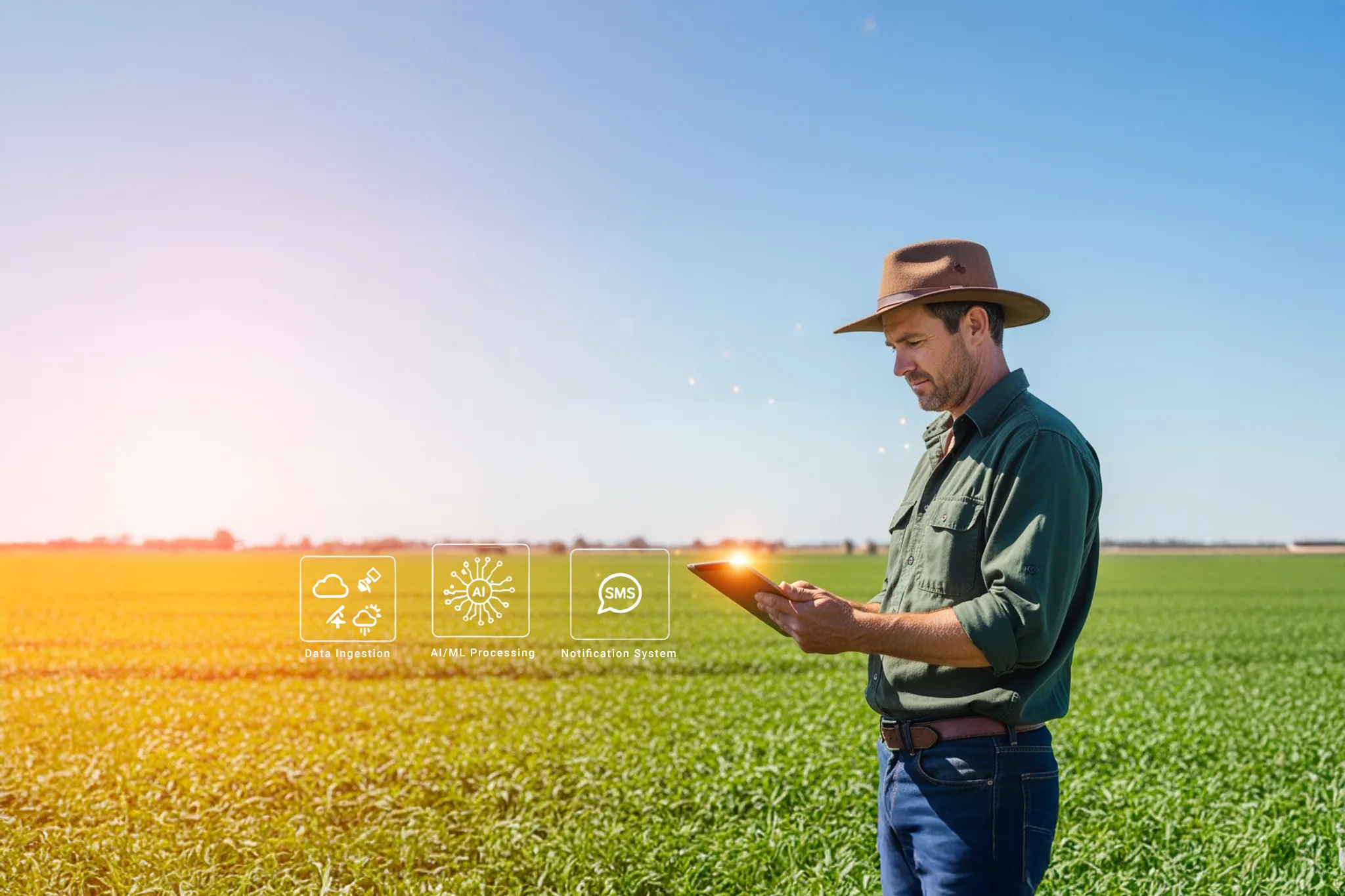Introduction
The delayed visibility into the emergence of endemic and exotic pests and diseases presents a grave, formidable challenge to agriculture, with the potential to devastate crops, disrupt ecosystems, and threaten food security. In Australia, pests and weeds cost farmers $5.3 billion per annum in management costs and production losses. Australian farmers spend $3.8 billion a year controlling vertebrate pests and weeds and write-off $1.5 billion in production losses. To safeguard agriculture against these threats, a robust disease early warning system capable of alerting farmers and offering mitigation advisories is imperative.
The significance of plant biosecurity in Australia
Deloitte’s gravity challenge
Cropin’s participation in the GRAVITY challenge 06
What is DEWS?
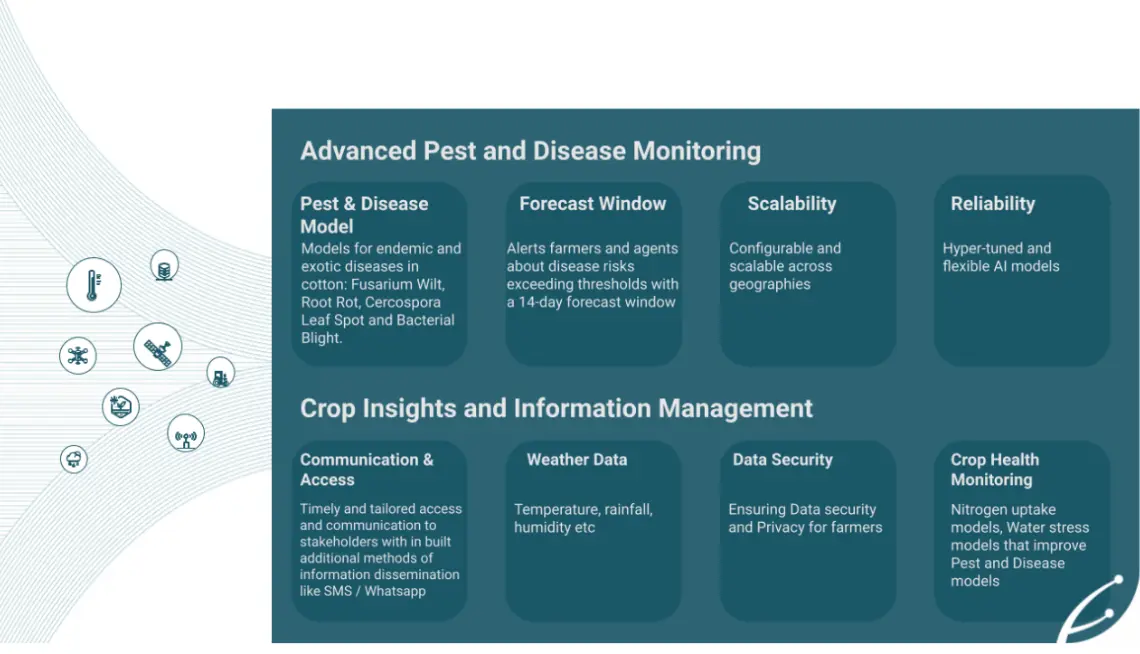
How DEWS works
1.Data ingestion: DEWS collects weather data from satellites (Sentinel, Planet), ground-based weather stations, and historical databases. This data includes parameters like rainy days, total rainfall, temperature (min, max, mean), and relative humidity.
2. AI/ML processing : Central to DEWS is its AI/ML algorithms. These algorithms analyze the incoming weather data and the crop’s current stage to predict disease probabilities. The model continuously learns from current and historical predictions, refining its accuracy over time.
3.Notification system: Once a disease probability is predicted, DEWS triggers SMS notifications to growers, ensuring timely communication. This proactive approach helps prevent extensive damage and reduces input costs.
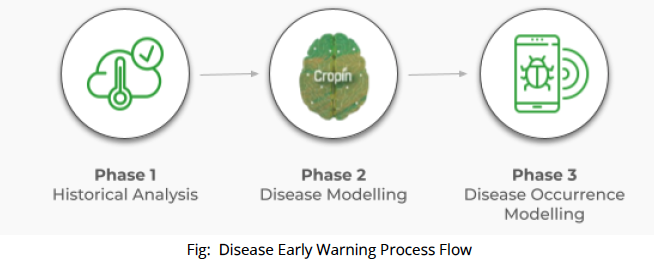
Benefits of DEWS for Northern Australian agribusinesses
2. Early detection: Early detection of plant diseases prevents extensive damage, ensuring higher crop yields and profitability.
3. Sustainability: DEWS promotes sustainable agricultural practices by reducing agrochemical use and encouraging regenerative practices.
4. Market optimization: Predictive intelligence from DEWS allows agribusinesses to optimize their marketing and sales strategies.
5. Farmer engagement: Timely SMS notifications strengthen farmer loyalty and enable better decision-making.
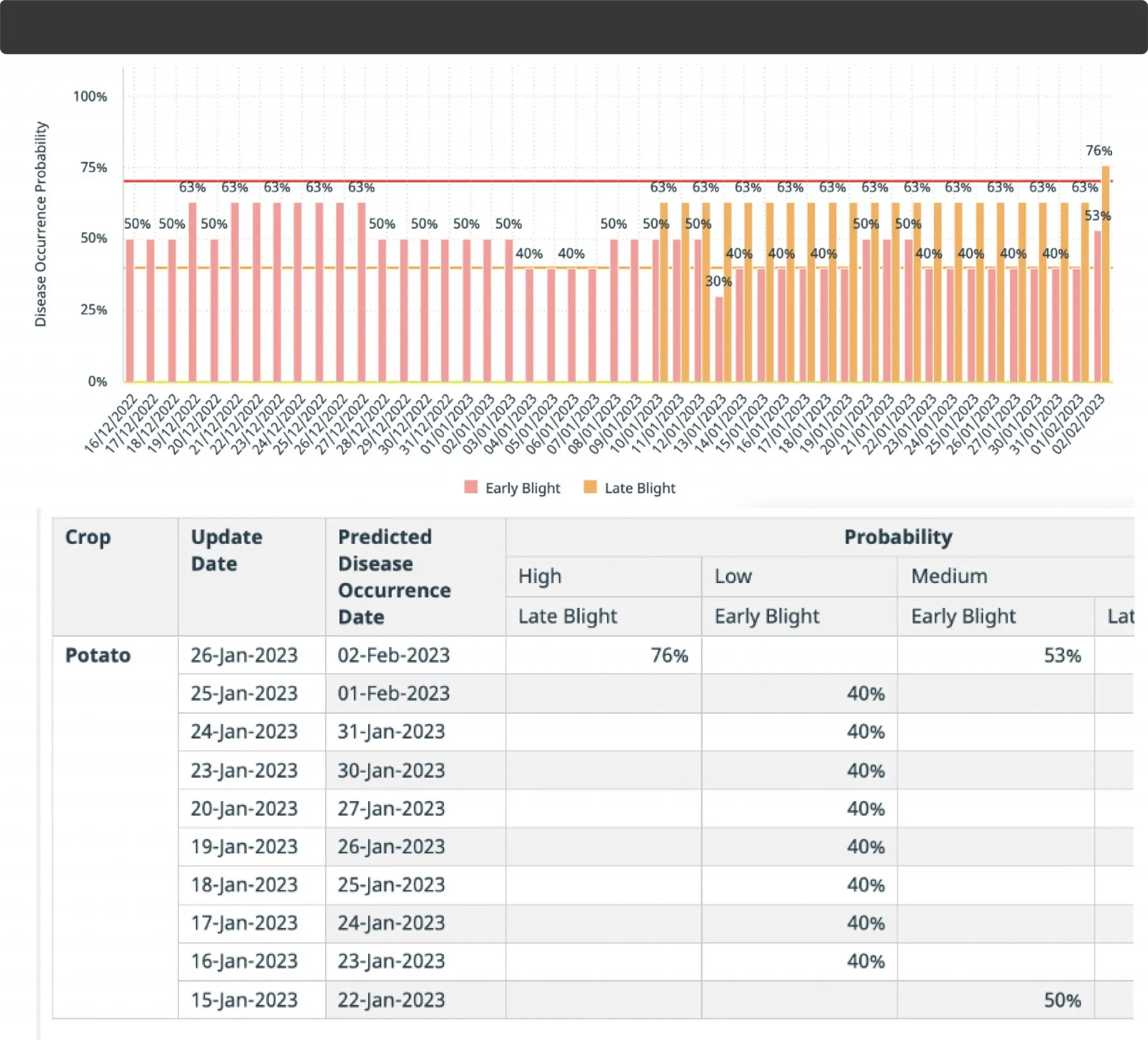
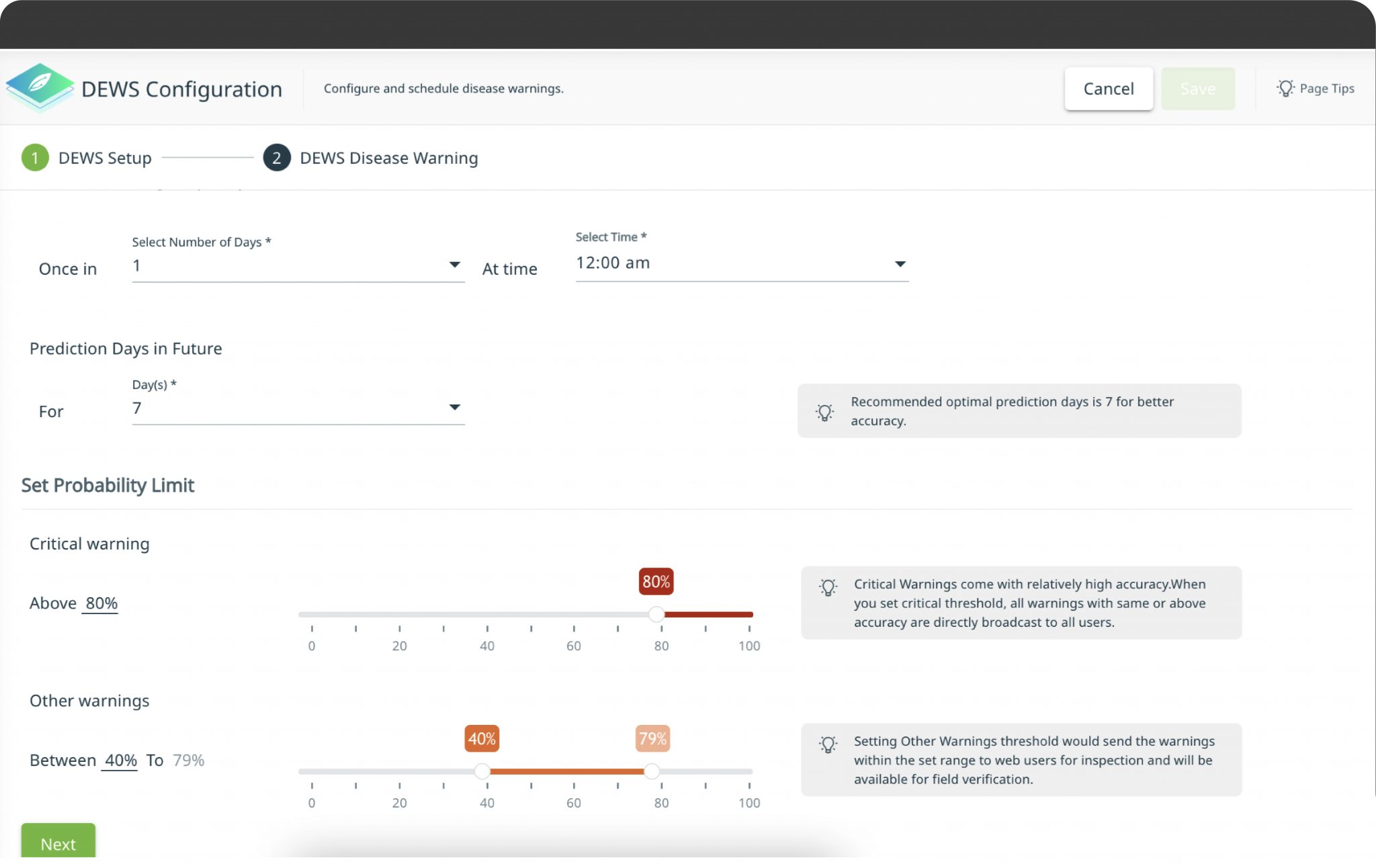
Impact on the agricultural sector
The Australian agricultural sector is projected to grow significantly in the coming years. According to the Contribution of Australian Horticulture Industry report, the sector comprising vegetables, fruit, turf, nuts, and nursery industries will witness a 22.5 percent increase in combined value by 2030, reaching $21.8 billion. However, a single biosecurity incident could jeopardize this growth. Cropin’s DEWS offers a robust solution to mitigate such risks, ensuring the sector remains resilient and competitive.
Case studies and success stories
Why Cropin’s DEWS stood out
Industry statistics and trends
- Biosecurity: According to the Australian Government Department of Agriculture, Fisheries and Forestry, over 200 known pests are significant to plant sectors, with 40 National Priority Plant Pests exotic to Australia.
- Economic impact : The gross commodity value of the Northern Territory agricultural sector was $1.14 billion in 2019, with beef cattle and plant-based crops contributing significantly.
- Growth potential: The Australian fruit, vegetable, nut, turf, and nursery industries are projected to surge by up to 22.5% in combined value by 2030.

